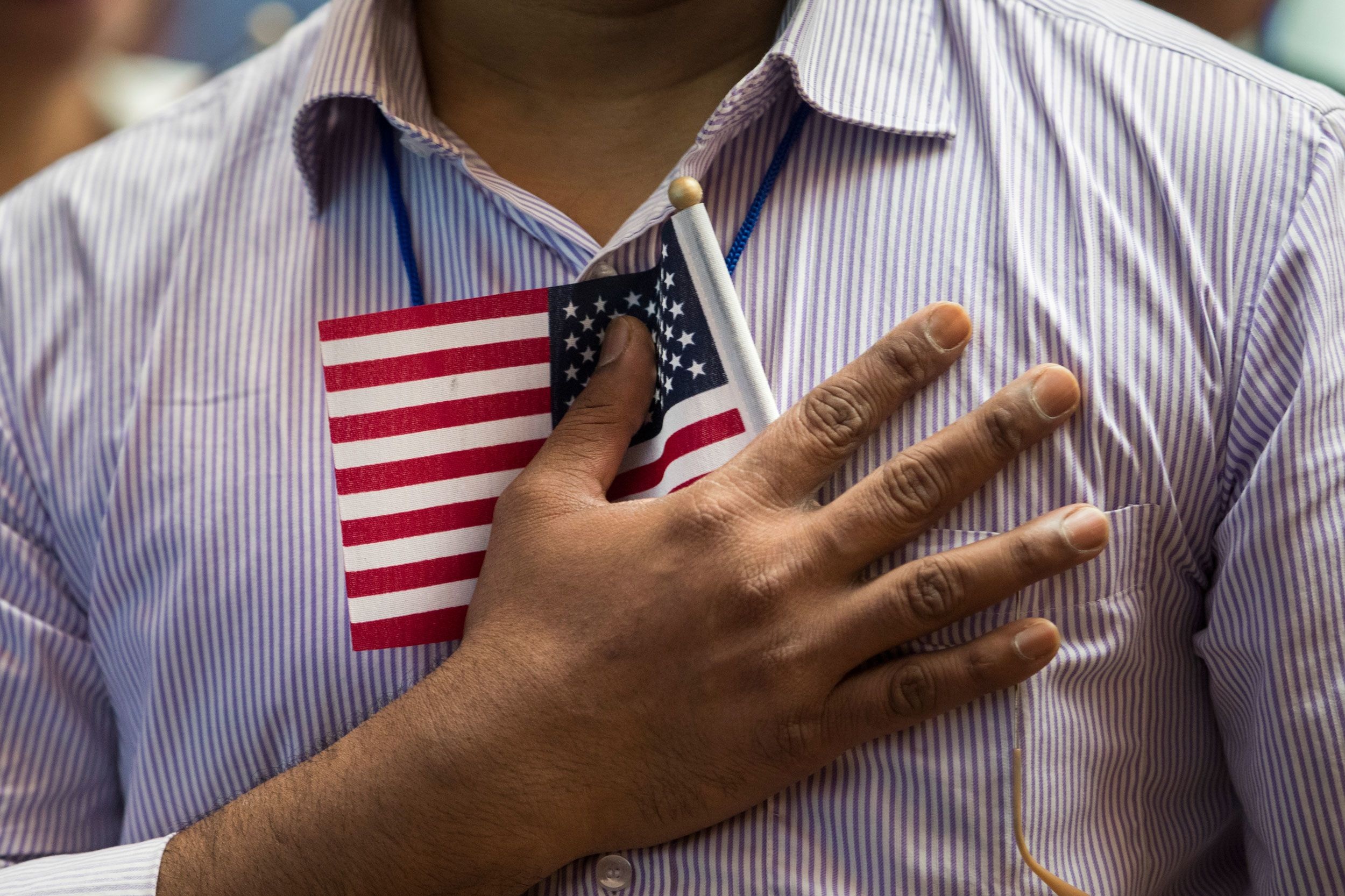In a move that has sparked alarm among civil rights advocates and immigrant communities, the Trump administration has formally advanced its campaign to revoke U.S. citizenship from certain naturalized Americans.
According to online media reports of Monday, June 30, 2025, a Justice Department memo, issued on June 11, outlines a strategic shift in policy.
It directed government attorneys to prioritize denaturalization cases under civil law, a significant escalation of previous efforts.
At the heart of this policy are the 25 million Americans who were born abroad but became U.S. citizens through naturalization.
These individuals now face increased legal scrutiny if the government believes their citizenship was obtained through fraud or misrepresentation.
The memo specifically instructs attorneys to pursue civil court action when it appears that citizenship was gained “illegally” or by “concealment of a material fact or willful misrepresentation.”
Unlike criminal proceedings, civil cases do not guarantee the right to a court-appointed attorney.
Furthermore, the legal threshold for stripping someone of their citizenship in civil court is lower, giving the government a clearer path to revocation.
According to the memo, the focus will be on naturalized citizens who have committed serious crimes.
These crimes include war crimes, human rights abuses, gang activity, or other offenses that pose a continuing threat to national security or public safety.
However, the scope goes well beyond such extreme cases.
The directive also includes those who may have committed financial or medical fraud, lied on immigration forms, or are entangled in criminal investigations.
Even cases referred by local U.S. Attorneys or tied to pending criminal charges could prompt denaturalization action.
Critics warn that the policy risks weaponizing the naturalization process, turning it into a tool for political or ideological enforcement.
They point out that this expansion could have a chilling effect on immigrant communities and erode trust in the legal fairness of the U.S. justice system.
What’s more, this aggressive push fits into a broader redefinition of priorities at the Justice Department, particularly within its civil rights division.
Once a bastion of civil liberties enforcement, especially in the wake of the civil rights movement, the division has undergone a stark transformation under Trump’s leadership.
Executive orders and policy shifts have redirected the division’s focus toward ending diversity, equity, and inclusion (DEI) initiatives.
This reportedly rolls back protections for LGBTQ+ individuals, especially transgender Americans, and challenging race-conscious policies in public institutions.
These changes come at a time when the U.S. Immigration and Customs Enforcement (ICE) agency has seen a troubling rise in deaths within detention centers.
Since the beginning of the current fiscal year in October 2024, ICE has recorded 13 in-custody deaths, already exceeding the total number from the previous fiscal year.
The Justice Department’s civil rights division is also making headlines for its involvement in high-profile investigations.
Just recently, University of Virginia president Jim Ryan stepped down amid an ongoing federal probe into the university’s DEI programs and the consideration of race and ethnicity in scholarships and academic programs.
The investigation was widely seen as part of the broader assault on progressive education policies.
In an unusual legal maneuver, the Justice Department also sued 15 district attorneys in Maryland.
This was for allegedly obstructing the deportation of migrants contesting their removal orders.
It highlighted how deeply immigration enforcement has been entwined with civil litigation under this administration.
The internal toll of these shifts is becoming increasingly apparent.
According to a recent National Public Radio (NPR) report, roughly 70% of the civil rights division’s attorneys, around 250 lawyers, have resigned or transferred out between January and May 2025.
They cited concerns over the politicization of their work and a departure from the division’s historical mission.
For millions of naturalized citizens, these developments raise unsettling questions about the permanence and security of their citizenship status.
As legal frameworks tighten and policy priorities shift, the line between criminality and citizenship eligibility appears increasingly blurred.
It leaves many to wonder just how secure their place in America really is.







